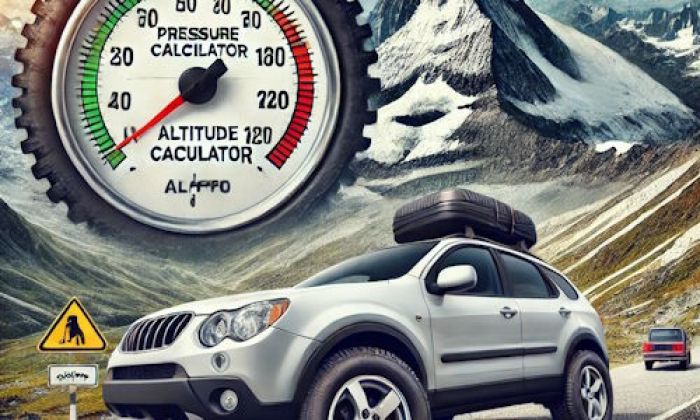In most cases, car owners prefer to have their fuel tanks always full. This opens some advantages like good range, independence, quick decisions on long trips, etc. But it surely gives some drawbacks, too. At first sight, having a full tank may seem like a good idea with no disadvantages at all, but we've found some considerations to take into account.
Today, we'll tell you why having a full tank of fuel at all times may be bad for you and your vehicle. We'll also explain to you how exactly you should buy fuel in different cases. It's not that all these downsides will inevitably be in your driving experience, but they are obviously worth thinking about if you tend to buy the full tank all the time.

Here's what we'll tell you about in this article:
- Do Americans tend to buy a full tank of fuel all the time?
- What are the obvious and unobvious advantages of having the full tank at all times?
- What are some disadvantages of full tank fuel?
- What should you do, according to your driving routine?
Let's get started!
How many Americans actually buy the full tank of fuel?
Each driver in the US, on average, uses over 650 gallons of fuel annually, Motley Fool's study says. This is a lot! But how exactly do they buy fuel? About 11% of American drivers keep driving their vehicles for some time after the low-fuel warning comes up and then buy the full tank. Also, about 30% of drivers in the US will buy fuel as soon as the low-fuel warning comes up and will also buy the full tank.
About half of all drivers will buy fuel in smaller parts without necessarily topping up the tank. They will buy a couple of gallons and keep driving. Then they will see that the fuel-gauge needle comes close to the Empty mark and will go to the gas station and buy a couple more gallons.
Other drivers have mixed or flexible habits. So, if they are going to drive interstate, they will usually buy a full tank of fuel. While in their average daily driving from home to work, they will buy several gallons to save up some money.
So, we see that drivers have their own reasons to buy a full tank or just several gallons. Let's see who is right!
What are your advantages when you buy a full tank of fuel?
Although the article is about the disadvantages of this habit, we should also investigate some good sides of buying more fuel. And obviously, for some drivers this makes sense and all other reasons listed in this article won't change the fact that charging a full tank is always the best idea for these people.
So, here are the advantages of always keeping a full tank of fuel:
- You can instantly jump in the car and start your journey. Need to go to the neighboring state? No problem, you just get in the vehicle and go no matter if you have any gas stations on your route.
- You react quickly to emergencies. Imagine you notice that the hurricane is coming to your city or town - it's so close that you can see some tornados over there in the outskirts. While all people are fighting for the chance to buy some fuel, you can just drive to some other city.
- You save your time. People who buy several gallons, need to go to the gas station more often and they will just lose their time.
- You can get extra bonuses and discounts from gas stations. Some companies offer discounts and loyalty programs that work better if you buy more fuel at once.
- Your fuel pump is always in its best condition. Fuel pumps like it when your fuel tank is full, They are cooled properly and don't need to work hard to deliver that fuel to the engine.
So, we see that there are obviously some advantages of having a full tank of fuel at all times. And we know quite a few people who only drive until they see the fuel-gauge needle showing about half of the tank. Then, they immediately go to the gas station and buy some more fuel to be safe.
But is that always the best scenario for you and for your vehicle? Let's see.
What are some of the disadvantages of having a full tank of fuel?
The disadvantages of having a lot of fuel in your vehicle may be both minor and major. Some of them are just negligible and can be overlooked, but some are important and depend on your driving style. We can even damage our vehicles if we neglect some of these facts.
Let's see which disadvantages a full tank of fuel has:
- Bigger weight of the car. When your car weighs more, it consumes more fuel. The average vehicle has a fuel tank size of 14 gallons which makes about 84 pounds of weight. It's not that much, but still, you will be carrying this with you all the time.
- Fuel quality may deteriorate. If you drive just a few miles a month, your full tank of fuel will be there for several months. After some time, the quality of the petrol in your tank will get worse. And then you will see worse gas mileage and the engine may suffer.
- You need to spend a lot of money at once. If you don't drive a lot, you will most likely buy several gallons of fuel a month. And this will be quite comfortable with your monthly salary. But if you need a full tank, it will cost you a lot and this may cause some inconveniences with your monthly budget.
- Possible fuel leaks. When you charge a full tank, the fuel is not only in the tank but also in the pipe attached to it and even in the breather. It means that leaks are much more possible than when there is half of the tank.
- Your charcoal canister is at risk of damage. This is one more reason why you should be careful with the full tank of gas. If your car has a charcoal canister, it will not like the idea of a full-charged tank.
- It can damage the car paint. When charging the fuel tank to the full, you may notice that some gas runs down on your car's side. They may easily damage the paint after some time and you will need to repaint the vehicle partially.
So, this may cost you some money and even cause some technical problems when you always charge the full tank of fuel. It's not exactly what every driver will get because the consequences depend on the driving style and other features. But the full tank obviously has its flaws. So, let's see how exactly you should buy fuel to keep your vehicle safe and your wallet happy.
Assess your driving style and choose the way to buy some fuel
The first thing to do before you buy some fuel at a gas station is to think about how many miles you are going to go within the next week. We recommend planning your fuel for one week because it's quite convenient in terms of visiting the gas station and also planning the nearest time without getting too far into the future where we can't predict much.
So, here's how you may assess your driving routine and buy as much fuel as you actually need for one week:
- count the miles you are going every day from home t work and back;
- also, add some miles that you drive to take your kids to and from school;
- notice how many miles you drive on weekends, usually, the amount will be more or less the same;
- add up all the miles that you have now and add 15% just for some extra driving;
- now look at the average gas mileage in your vehicle and see how much fuel you need for this amount of miles;
- if it's more than the full tank or just about the full tank, then you are OK to buy the full tank every week or as often as you need;
- but if it's much less than the full tank, then you should just limit your weekly fuel purchase to this figure.
This way, you will be able to visit the gas station every week, still have some amount of fuel for emergency situations, and you won't spend a lot of money buying fuel. Also, your gas will always be fresh and in good condition, it won't damage your car which is important.
Also, remember that there are cases when you still better keep the fuel tank full. Here they are:
- you are going to drive to some other state or city this week;
- you know that there may be some weather emergency and you may want to leave this place;
- you use your car for work and you just don't know how much you will drive this week;
- you understand that fuel prices will go up within the next few days.
So, now you know everything you need about the full tank of fuel and the possible disadvantages of having a lot of gas in your car at all times. We hope you will be able to compare all advantages and disadvantages and make a good decision on how you should buy fuel for your vehicle.
About the authors
The CarAraC research team is composed of seasoned auto mechanics and automotive industry professionals, including individuals with advanced degrees and certifications in their field. Our team members boast prestigious credentials, reflecting their extensive knowledge and skills. These qualifications include: IMI: Institute of the Motor Industry, ASE-Certified Master Automobile Technicians; Coventry University, Graduate of MA in Automotive Journalism; Politecnico di Torino, Italy, MS Automotive Engineering; Ss. Cyril and Methodius University in Skopje, Mechanical University in Skopje; TOC Automotive College; DHA Suffa University, Department of Mechanical Engineering






Add comment